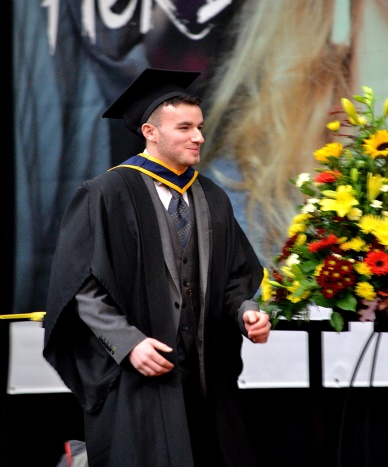Peter Lynch
Current PhD Student
Tongue Stimulation for Motor Recovery in Upper/Lower limbs in chronic stroke
Recognised Research Group: CHANCE
Research Cluster: Neuroplasticity Research Group
Project title: Effects of combined vibrotactile and auditory Sensory Substituted Functional Training on Balance, Gait, and Functional Performance after Stroke – Development of Prototype and pilot randomized preliminary study
Background:
Stroke is a major health issue, found to be a principle source of global burden of care and long-term disability. The Lancet Neurology examined the ‘Global Burden of Stroke’ from 1990 to 2016. They found in 2016, there was a reported prevalence of over eighty million stroke survivors and almost fourteen million new cases globally that year. An estimated one hundred and sixteen million Disability-Adjusted Life-Years were lost due to stroke. The most common reported deficit induced by stroke is motor impairment, which can be described as loss or limitation of muscle control function or movement, or limitation in mobility.
Sensory Substitution (SS) is the use of one sensory modality to supply environmental information normally gathered by another sense while still preserving key functions of the original sense. SS can be used to supplement traditional rehabilitation by providing interactive feedback on body kinematics for supporting motor learning. SS is a potentially promising modality for improving functional outcomes post-stroke by enhancing traditional rehabilitation. This pilot RCT and future larger trial aim to examine the feasibility and effects of combined vibrotactile and auditory SS supplemented functional training on balance, gait, and functional performance post-stroke.
Methodology:
Participants: Twenty adults with a confirmed diagnosis of stroke who have formally finished their rehabilitation treatment.
Setting: Home-based setting, initial and outcome assessments in IT Sligo.
Intervention: Each participant will be issued his or her own vibrotactile (vibration) and auditory (sound) SS device. Participants will undertake balance, gait and functional training. Participants will be trained to use the device independently at home. Research team will monitor device usage and frequently contact participants to receive progress updates. Participants will be randomly placed in either an Experimental or Control group using a block randomization process.
Experimental group: Will receive vibrotactile and auditory SS supplemented balance, gait and functional training. The intervention will be given for approximately 4 weeks with a frequency of 3 times per week of 90-minute duration. Larger trial duration will be 8-12 weeks.
Control group: Will receive a sham intervention by wearing the device with no stimulus for the same period
Potential Impact of research:
Positive findings of this proposed research could warrant the potential use of the prototype device as an additional rehabilitation tool of any Physiotherapy or Occupational Therapy setting. The device would also allow for independent home use, which in line with current restrictions on daily lives due to the COVID-19 pandemic may be a vital element to future neurological rehabilitation in keeping with the Early Supported Discharge Model of Care. The proposed development of investigational prototypes of such a device will occur on-site in IT Sligo in collaboration with the Product/Creative Design team. This team will assist in conducting scientific validation on the investigational device and assessing feasibility data on its use in the home and rehabilitation settings. Following this, we would seek to develop a final product. Focus would then shift to business development plans and industrial collaborations. A patent or invention disclosure would be prepared, and license agreements evaluated. The hypothesized rehabilitative device has the potential impact of transforming traditional neurology rehabilitation for stroke survivors.
Personal Biography:
Peter Lynch obtained his BSc in the area of Health Science and Physiology & Health Promotion (Hons) from the Institute of Technology (IT) Sligo. He went on to obtain his MSc in Physiotherapy from Queen Margaret University Edinburgh. He is a registered Chartered Physiotherapist, having also being registered and working clinically in the United Kingdom prior to returning to IT Sligo in 2020. He is a member of the Neuroplasticity Research Group. He has already secured one peer-reviewed publication and another is currently under review. He has previously presented at two international conferences; the 19th World Confederation for Physical Therapy Congress and the 13th UK Stroke Forum Conference. He intends to transfer from Research MSc to PhD as he progresses through his research project.
Papers
Journal of Alzheimer’s and Neurodegenerative Diseases (Impact Factor: 0.64)
Title: “Translingual Neurostimulation for Peripheral Motor Control Recovery Post In-Patient Stroke Rehabilitation: A Focus Article” (DOI: 10.24966/AND-9608/100038)
Presentations
– 19th World Confederation for Physical Therapy Congress (2019)
Title: “Perceived Influences of Physical Activity Adherence in Chronic Stroke: A Qualitative Meta-synthesis”
– 13th UK Stroke Forum Conference (2018)
Title: “Perceived Influences of Physical Activity Adherence in Chronic Stroke: A Qualitative Meta-synthesis”
